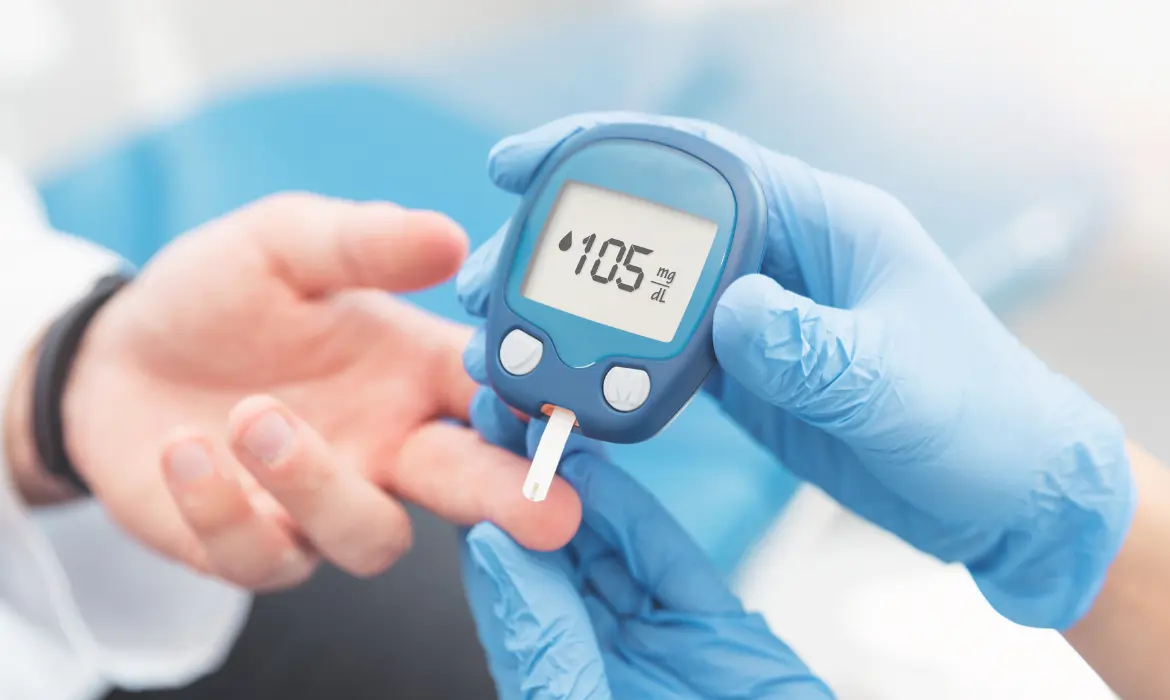How often should you get blood tests? A comprehensive timeline.
Here’s a breakdown of when and what to check. But first…
Why get blood tests?
Blood tests give a snapshot of your overall health. They help detect diseases, monitor existing conditions, and guide treatment decisions. Routine tests can catch early warning signs of a variety of issues, ranging from heart disease to vitamin deficiencies, before they become serious.
What do they do?
Blood tests measure different substances in your blood, helping doctors assess various aspects of health. Common tests include:
- Complete Blood Count [CBC]: Checks red and white blood cell levels, detecting anemia, infections, and immune system issues.
- Lipid Profile: Measures cholesterol [HDL, LDL] and triglycerides, which are key indicators of heart health.
- Blood Sugar [Glucose & Haemoglobin A1C]: Helps identify diabetes or prediabetes by tracking blood sugar levels over time.
- Vitamin D & B12 Levels: Low levels can cause fatigue, bone weakness, and nerve problems.
- Iron Studies [Ferritin, Transferrin]: Identifies iron deficiency anemia or iron overload.
So when should you get checked?
Apart from routine tests, there are times when you should consider extra screenings:
- Unexplained symptoms: Fatigue, weight changes, dizziness, or persistent pain can indicate underlying issues.
- Family history: If certain diseases run in your family, early and frequent screening can help with prevention!
- Before starting new medication: Some medications can affect liver, kidney, or metabolic health and require baseline tests.
- Significant lifestyle changes: Major weight loss, diet changes, or increased stress levels might impact health markers.
- Post-illness: Blood tests can confirm recovery or detect lingering effects after infections.
For routine tests, we’re answering all the common questions of when you should get a test, how frequently you should get tested based on your age and some male or female-specific tests! Here’s a comprehensive timeline based on your age and sex:
In your 20s
This is the perfect time to set a baseline for your health as well as check for common issues. Tests should ideally be taken every 3 to 5 years and include:
- Complete Blood Count [CBC]: Checks for anaemia, infections, and your immune health.
- Lipid Profile: Monitors cholesterol and triglycerides; this one’s especially important if you have a family history of heart disease!
- Blood Sugar [Glucose]: Screens for diabetes risk.
- Vitamin D: Important for bone and immune health, especially if your sun exposure is low. Take extra precautions in the winter months!
- Thyroid Panel [TSH, T3, T4]: Checks for metabolism issues; thyroid imbalances can affect your mood and energy levels, and are much more common in women.
- Iron Levels [Ferritin, Transferrin]: Helps spot iron-deficiency anaemia, especially if you have heavy periods.
In your 30s
Life can get busy as responsibilities increase, but don’t ignore your health – it’s in your best interest. Our bodies change and metabolism shifts as we grow, and regular testing ensures the early detection of imbalances. Tests should ideally be taken every 2 to 3 years and include:
- Complete Blood Count [CBC]: Checks for anaemia, infections, and your immune health.
- Lipid Profile: Monitors cholesterol and triglycerides; this one’s especially important if you have a family history of heart disease!
- Haemoglobin A1C: A better long-term measure of blood sugar control to catch diabetes early.
- Blood Sugar [Glucose]: Screens for diabetes risk.
- Vitamin D: Important for bone and immune health, especially if your sun exposure is low. Take extra precautions in the winter months!
- Hormone Panel [Oestrogen, Progesterone, FSH, Testosterone]: Useful if dealing with fatigue, low libido, irregular periods, or fertility concerns.
- Thyroid Panel [TSH, T3, T4]: Checks for metabolism issues; thyroid imbalances can affect your mood and energy levels, and are much more common in women.
- Iron Levels [Ferritin, Transferrin]: Helps spot iron-deficiency anaemia, specially if you have heavy periods.
- STI Tests: Get checked as recommended by your GP (or as needed!).
In your 40s
Chronic conditions start creeping in, so stay ahead! We recommend getting tests every 1 to 2 years, including:
- Complete Blood Count [CBC]: Checks for anaemia, infections, and your immune health.
- Lipid Profile: Monitors cholesterol and triglycerides; this one’s especially important if you have a family history of heart disease!
- Blood Sugar [Glucose]: Screens for diabetes risk.
- Haemoglobin A1C: A better long-term measure of blood sugar control to catch diabetes early.
- Vitamin D and B12 levels: Important for bone health and energy levels. Take extra precautions in the winter months, especially if your sun exposure is low!
- Thyroid Panel [TSH, T3, T4]: Checks for metabolism issues; thyroid imbalances can affect your mood and energy levels, and are much more common in women.
- Iron Levels [Ferritin, Transferrin]: Helps spot iron-deficiency anaemia, specially if you have heavy periods.
- Liver and Kidney Function Tests: Checks for early organ problems, especially if you drink or take meds regularly.
- C-Reactive Protein [CRP]: Looks for inflammation linked to heart disease.
- Perimenopause Markers [FSH, LH, Estradiol]: Helps track hormonal changes leading into menopause.
- Prostate-Specific Antigen [PSA]: Recommended if prostate issues run in your family.
In your 50s
Health risks rise due to significant hormonal changes and an increased risk for chronic conditions, so yearly tests are a good idea!
- Complete Blood Count [CBC]: Checks for anaemia, infections, and your immune health.
- Lipid Profile: Monitors cholesterol and triglycerides; this one’s especially important if you have a family history of heart disease!
- Blood Sugar [Glucose]: Screens for diabetes risk.
- Haemoglobin A1C: A better long-term measure of blood sugar control to catch diabetes early.
- Vitamin D, B12, and Calcium Levels: Supports bone and neurological health.
- Thyroid Function Tests [TSH, T3, T4]: Checks for metabolism issues; thyroid imbalances can affect your mood and energy levels, and are much more common in women.
- Iron Levels [Ferritin, Transferrin]: Helps spot iron overload or iron-deficiency anaemia, specially if you have heavy periods.
- Liver and Kidney Function Tests: Checks for early organ problems, especially if you drink or take meds regularly.
- C-Reactive Protein [CRP] and Cardiac Risk Markers [LDL, HDL, Triglycerides]: Looks for inflammation linked to heart disease.
- Prostate-Specific Antigen [PSA] test: More crucial as the risk of prostate cancer increases.
- Bone Density Markers: Keeps tabs on osteoporosis risk.
- Cancer Markers [CA-125, CEA]: Based on your personal and family history.
- Hormone Levels [Testosterone, Prolactin]: Can affect energy, libido, and body composition.
In your 60s [and beyond!]
Your focus may shift to managing chronic conditions while optimising your quality of life – we recommend getting tests annually or as advised by your doctor:
- Complete Blood Count [CBC]: Checks for anaemia, infections, and your immune health.
- Lipid Profile: Monitors cholesterol and triglycerides; this one’s especially important if you have a family history of heart disease!
- Blood Sugar [Glucose]: Screens for diabetes risk.
- Haemoglobin A1C: A better long-term measure of blood sugar control to catch diabetes early.
- Vitamin D, B12, and Calcium Levels: Supports bone and neurological health.
- Thyroid Function Tests [TSH, T3, T4]: Checks for metabolism issues; thyroid imbalances can affect your mood and energy levels, and are much more common in women.
- Iron Levels [Ferritin, Transferrin]: Helps spot iron overload or iron-deficiency anaemia, specially if you have heavy periods.
- Liver and Kidney Function Tests: Checks for early organ problems, especially if you drink or take meds regularly.
- C-Reactive Protein [CRP] and Cardiac Risk Markers [LDL, HDL, Triglycerides]: Looks for inflammation linked to heart disease.
- Comprehensive Metabolic Panel [CMP]: Checks overall organ function and electrolyte balance.
- Cancer Markers [CEA, PSA, CA-125]: Based on your individual risk factors.
- Electrolytes and Hydration Markers: Important for preventing dehydration and imbalances.
Other Factors:
- Family history: If conditions like heart disease, diabetes, or cancer run in your family, you may need earlier or more frequent tests.
- Lifestyle: Smoking, alcohol, stress, and diet can affect how often you should test.
- Reproductive history: If you’ve had gestational diabetes or hormone-related conditions, keep an eye on those risks as you age!
The Long and Short
Regular blood tests help catch health problems early. Work with your doctor to figure out what’s best for you, but don’t skip them – a little prevention goes a long way!



